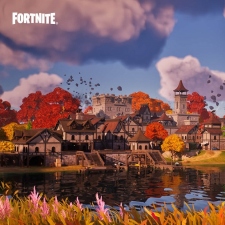There’s probably no bigger game at the moment, on any platform, than Fortnite. Originally released as a relatively low-key survival building game, its battle royale version catapulted the game to super stardom. With cross-platform play as a key element and the game’s reliance on big and bold brand collaborations to push its content, “Fortnite Chapter 4” doesn’t seem set to diminish this any time soon.
Announced collaborations
Fortnite would likely not be where it is today without a myriad of in-game collaborations. Ranging from pedestrian, to impressive, to outright baffling. This year’s new stars, announced or teased in the Chapter 4 trailer, includes, but is not limited to; Famous Youtuber MrBeast, The Doom Slayer from… well, Doom, Geralt of Rivia from the Witcher, Hulk from Marvel Comics among others.
Cross platform
A crucial aspect of Fortnite’s success has of course been its mobile version. Allowing players to not only play with others on smartphones and handheld devices, but with those on every other platform as well, pushes the game’s audience numbers ever higher.
And rather than start again, and convince players to move to this year’s sequel, simply retooling the game in the background and adding new features allows them to keep their audience playing the game they already have installed.
At this stage Fortnite’s ‘Chapter’ updates are as slick (and potentially more lucrative) than any other new release anywhere it the world of entertainment.
It hasn’t all been smooth sailing, as the Epic v Apple lawsuit is testament to, however overall the mobile release of Fortnite was a massive goldmine for Epic Games.
Graphics upgrades
Although Epic’s dedication to cross-platform play, as previously stated, is key to Fortnite’s success, they’re still attempting to push forward graphical fidelity. Epic Games are of course the creators of the Unreal engine series, which has been a staple feature of game development for years. This time, with the debut of Unreal Engine 5.2’s Nanite and Lumen lighting we’ll get what could probably be our first taste of the next level of shadows and light-casting.
Epic, have of course also been embroiled in an ongoing lawsuit with Google, accusing the software giant of paying off creators to prevent the creation of alternative app stores. A claim that Google denies, however it marks the second massive lawsuit against first-party storefronts that Epic has been involved in since the infamous Epic v Apple lawsuit.

